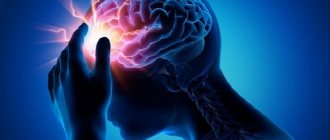Human personality as a changing system
The line where pathology begins behind the norm is quite blurry and has not yet been clearly defined either in psychiatry or psychology. Therefore, mental illnesses are difficult to unambiguously interpret and evaluate. If signs of mental disorder are observed in women, they may be the same in men. Obvious gender differences in the nature of the manifestation of mental illness are sometimes difficult to notice. In any case, with obvious mental disorders. But the prevalence rate by gender may vary. Signs of mental disorders in men appear with no less force, although they are not without their originality.
If a person believes, for example, that he is Napoleon or has superpowers, or he experiences sudden mood swings for no reason, or begins to feel melancholy or falls into despair because of the most trivial everyday problems, then we can assume that he is exhibiting signs of mental illness. diseases. There may also be perverted attractions or his actions will be clearly different from normal. Manifestations of painful mental states are very different. But what will be common is that, first of all, a person’s personality and his perception of the world will undergo change.
Personality is the totality of a person’s mental and spiritual properties, his way of thinking, responding to changes in the environment, and his character. The personality traits of different people have the same differences as physical ones - the shape of the nose, lips, eye color, height, etc. That is, the individuality of a person has the same meaning as physical individuality.
By the manifestations of personality traits, we can recognize a person. Personality traits do not exist separately from each other. They are closely interconnected, both in their functions and in the nature of their manifestation. That is, they are organized into a kind of integral system, just as all our organs, tissues, muscles, bones form the bodily shell, the body.
Just as the body undergoes changes with age or under the influence of external factors, personality does not remain unchanged, it develops and changes. Personality changes can be physiological, normal (especially with age) and pathological. Personality changes (normal) with age, under the influence of external and internal factors, occur gradually. The mental appearance of a person gradually also changes. At the same time, personality properties change so that the harmony and integrity of the personality are not violated.
What happens when there is a sharp change in personality traits?
But sometimes, personality can change dramatically (or at least it will seem so to others). People I know suddenly turn from modest to boastful, too harsh in their judgments; they were calm and balanced, but they became aggressive and hot-tempered. They turn from being thorough into frivolous and superficial. Such changes are hard to miss. Personal harmony has already been disrupted. Such changes are already clearly pathological, they are deviations in the psyche. It is obvious that mental illness can cause such changes. Both doctors and psychologists talk about this. After all, mentally ill people often behave inappropriately to the situation. And this becomes obvious to others over time.
Factors provoking the emergence and development of mental illness:
- Traumatic injuries to the head and brain. At the same time, mental activity changes dramatically, obviously not for the better. Sometimes it stops altogether when a person falls into an unconscious state.
- Organic diseases, congenital brain pathologies. In this case, both individual mental properties and the entire activity of the human psyche as a whole may be disrupted or “drop out.”
- General infectious diseases (typhoid, septecemia or blood poisoning, meningitis, encephalitis, etc.). They can cause irreversible changes in the psyche.
- Intoxication of the body under the influence of alcohol, drugs, gases, medicines, household chemicals (such as glue), poisonous plants. These substances can cause profound changes in the psyche and disruption of the central nervous system (CNS).
- Stress, psychological trauma. In this case, signs of mental abnormalities may be temporary.
- Burdened heredity. If a person has a history of close relatives with chronic mental illnesses, then the likelihood of manifestation of such a disease among subsequent generations increases (although this point is sometimes disputed).
There may be other reasons among the above factors. There may be many of them, but not all of them are known to medicine and science. Usually, a clearly mentally unbalanced person is immediately noticeable, even to ordinary people. And yet, the human psyche is perhaps the most poorly understood system of the human body. That is why its changes are so difficult to analyze clearly and unambiguously.
RELATED MATERIALS: Why does stereotypy appear in children and how to distinguish it from other disorders?
Each case of pathological changes in the psyche must be studied individually. Mental disorder or illness may be acquired or congenital. If they are acquired, it means that a certain moment has come in a person’s life when pathological personality traits came to the fore. Unfortunately, it is impossible to trace the moment of transition from normal to pathology, and it is difficult to know when the first signs appeared. As well as preventing this transition.
What is the difference between a normal person and a psychopath?
A healthy person knows how to adapt to the environment, reacts adequately to aggressive influences, and is able to solve emerging problems. In life he strives for good, wants peace, tranquility, friendship, love, harmony and so on.
Psychopaths have evil intent at the core of their personality. They are not able to adapt to living conditions in the external environment; on the contrary, they strive to subjugate, humiliate, remake them for themselves, and create problems for others, which makes life with them unbearable.
Most psychopaths are intellectually developed, work, can be successful businessmen, directors, managers, scientists, and among others they behave like ordinary people, they know what politeness is, compliments, and will open the door for a woman. They know how to control themselves, but this makes them very tired, internal tension accumulates, and when they come home, they take out all the aggression on their loved ones.
The contrast between behavior at work, in public places, among a large number of relatives and at home is very striking and misleading. At home he is an aggressive, inadequate tyrant, but in public he is a good, kind person, an excellent employee whom everyone loves.
The main thing to understand in relationships with psychopaths is other people. There is no need to try to build relationships with them, hoping that with your love you can change them. You should immediately stop all communication with such people and be as far away from them as possible; being close to them is life-threatening.
Where and when does the “abnormality” begin?
Where is the line beyond which mental illness immediately begins? If there was no obvious interference from the outside in the psyche (head injury, intoxication, illness, etc.), in any case, there was no, in the opinion of both the sick person himself and his environment, then why did he get sick or did mental disorders arise? even if not psychogenic? What went wrong, at what point? Doctors have not yet answered these questions. One can only make assumptions, carefully study the anamnesis, try to find at least something that could provoke the changes.
Speaking of innate, it is assumed that a person’s mental properties have never been in harmony. A person was born with a damaged personality. Mental disorders in children and their symptoms represent a separate area for study. Children have their own mental characteristics that differ from adults. And it should be borne in mind that signs of a mental disorder can be obvious and obvious, or they can appear as if gradually and by chance, occasionally. Moreover, anatomical changes (most often this means changes in the brain, first of all) in diseases and mental disorders can be visible and obvious, but sometimes it is impossible to trace them. Or their changes are so subtle that they cannot be traced at this level of medical development. That is, from a purely physiological point of view, there are no violations, but the person is mentally ill and needs treatment.
The pathophysiological basis of mental illness should be considered, first of all, dysfunction of the central nervous system - a violation of the basic processes of higher nervous activity (according to I.P. Pavlov).
If we talk directly about the signs of mental disorders, then we should take into account the peculiarities of the classification of mental illnesses. In each historical period of development of psychiatry, classifications have undergone various changes. Over time, it became obvious that there is a need for consistent diagnosis of the same patients by different psychiatrists, regardless of their theoretical orientation and practical experience. Although even now this can be difficult to achieve, due to conceptual disagreements in understanding the essence of mental disorders and diseases.
Another difficulty is that there are different national taxonomies of diseases. They may differ from each other according to various criteria. At the moment, from the point of view of the significance of reproducibility, the International Classification of Diseases, 10th revision (ICD 10) and the American DSM-IV are used.
Types of mental pathology (according to the domestic classification) depending on the main causes that cause them:
- Endogenous (under the influence of external factors) mental illnesses, but with the participation of exogenous factors. These include schizophrenia, epilepsy, affective disorders, etc.
- Exogenous (under the influence of internal factors) mental illnesses, but with the participation of endogenous factors. These include somatogenic, infectious, traumatic diseases, etc.
- Diseases caused by developmental disorders, as well as due to dysfunctions or disruptions in the functioning of mature body systems. These types of diseases include various personality disorders, mental retardation, etc.
- Psychogenics. These are diseases with signs of psychosis, neuroses.
It is worth considering that all classifications are not perfect and are open to criticism and improvement.
The perfect diet for your brain
Our body needs the right nutrients. Different diets can be beneficial for our health. They should include fruits and vegetables. Also don't forget about fish, nuts and legumes. Poultry, eggs and low-fat dairy products should be consumed in moderation. We should avoid fast food items.
It is also worth remembering to limit the consumption of sweets and carbonated drinks. A properly formulated diet will have a positive effect on our mind and body as a whole. Remember to drink plenty of fluids. Plain water or tea would be best. You need to drink from 2 to 3.5 liters per day.
Do not overeat under any circumstances. It's better to eat less, but regularly. Remember that the signal that you have eaten well comes to us with a delay. If you finish your meal but don't feel hungry yet, wait a little. The brain will receive a signal and you will feel more full. Those who forget about this often have problems with excess weight.
There is a huge amount of salt and sugar in everyday food. Try to reduce their intake in your food. Also avoid eating foods that are highly processed as they contain high amounts of salt. The most important thing is to maintain common sense, extremes are always unfavorable. So take care of your diet, but don't become a fanatic who can ruin yourself by doing so.
Your body will reciprocate your feelings
As we see, there are no secrets or magic pills in how to strengthen the psyche of an adult. If you make sure you get enough sleep, exercise regularly, and eat right, your emotional and physical health will begin to improve over time. By introducing good habits into your daily life, you will feel better physically and mentally.
The brain is responsible for our mood and how we deal with emotions. It is also responsible for resilience, which helps you cope with various life challenges. Only by taking care of yourself can you improve your consciousness. Otherwise, you have no chance of making positive changes.
Think about which of the above can help you understand how to strengthen the psyche of an adult. Start with what you neglect the most. Stop watching TV shows late and sitting at the computer. Take care of the place where you sleep. Start planning your diet. Get out into the fresh air and walks more often. And gradually, you will begin to notice improvements in your mental and physical health.
Subscribe to our Telegram Did you like the article? Share on social media networks or leave a comment!
ShareTweet
Similar articles
Aggressive behavior: types of aggression, how to recognize and how to deal with aggression
How to stop being shy: ways to overcome shyness
How to get rid of perfectionism
about the author
Milena
I write for you on the most relevant and popular topics. Follow our resource, there will be many useful articles. Add the site to bookmarks and share with friends.










